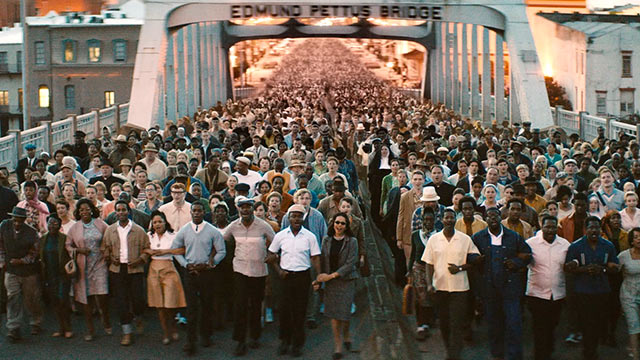“Selma” is a Triumph
February 11, 2015
Last year, historic marches and protests regarding civil rights sparked intense debate over the state of equality in America. In the wake of so many deaths of innocent, unarmed black people, a movie like the incredible Selma feels important and immediate.
In all of the remembrances of Dr. Martin Luther King, Jr’s work, the tedious, day to day planning and work depicted in Selma is rarely shown. For every moment of inspiration, there is a moment of careful waiting. For every mountain top, there is a holding cell.
Director Ava DuVernay’s portrait of the civil rights movement is so powerful because it transcends traditional biopics. Selma is actually geared toward the achievements of its black subjects, unlike the all-too-common trope of black history movies glorifying white saviors (the one flaw of 12 Years a Slave was Brad Pitt’s angelic white savior character).
David Oyelowo’s portrayal of King is without a doubt one of the best performances of 2014, helping ground the larger-than-life King and giving flowing, beautifully moving speeches. Oyelowo is a force to look out for in the future.
In one particularly moving sequence, supporters of King in the town of Selma march at night, soon to be attacked by racist white officers. Protesters are beaten and subdued, and one supporter is tragically murdered.
DuVernay’s film is a story of institutionalized racism and hate. How the Jim Crow system and segregation survived in America for so long confounds me and should confound you. Selma forces a difficult conversation on anyone who sees it.
However, the film isn’t completely accurate. Selma depicts President Johnson as a foil to King, even though the relationship between the two was productive.
The movie rises above this and a few other minor flaws with an electric script and tremendous performances.
Selma, beyond a doubt, is headed to become one of the best films of the new year and one of the most important historical movies of all time.
After seeing this film, it’s abundantly clear that it was robbed by the Oscars. Movies directed by, starring, and depicting black people have always had trouble being nominated, but this oversight is flagrant. Selma deserves more than its small release and nominations.
See this movie. Just see this movie.






